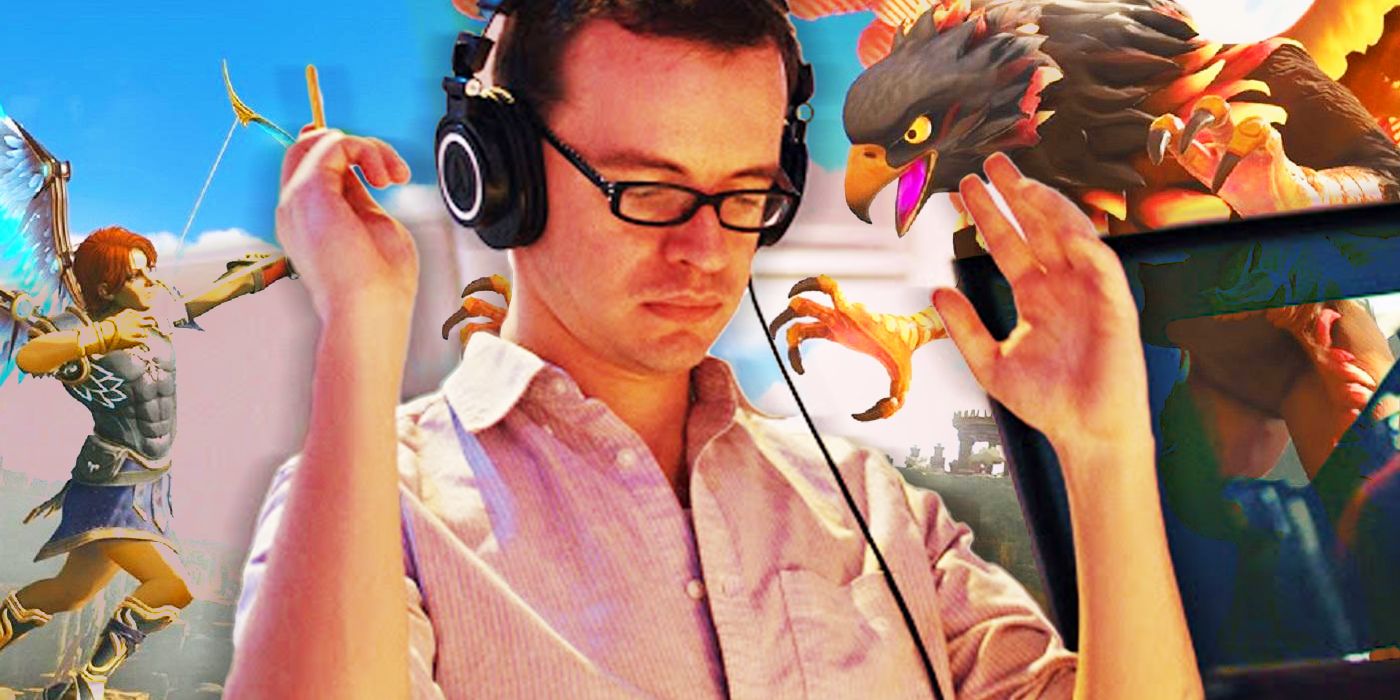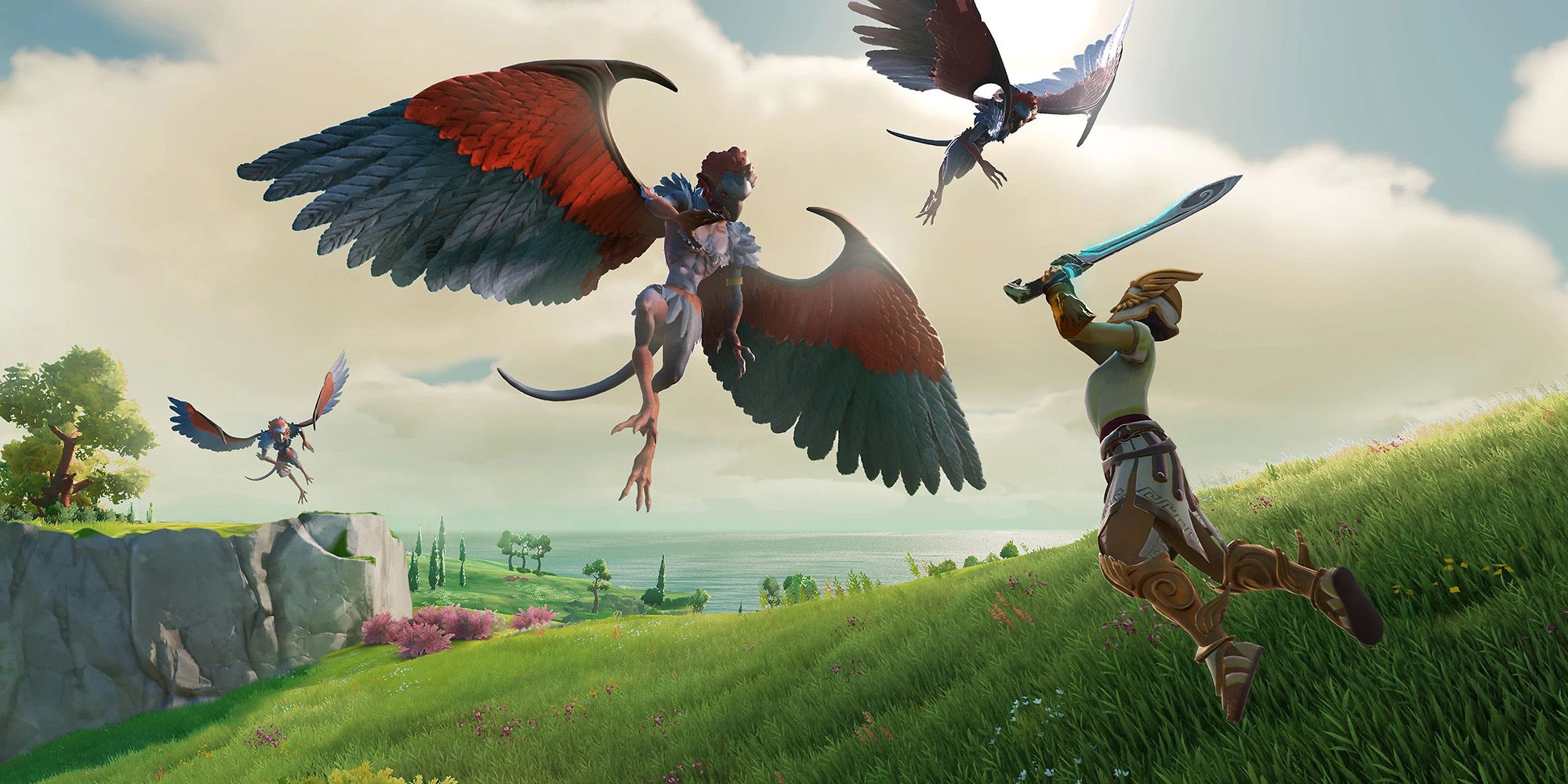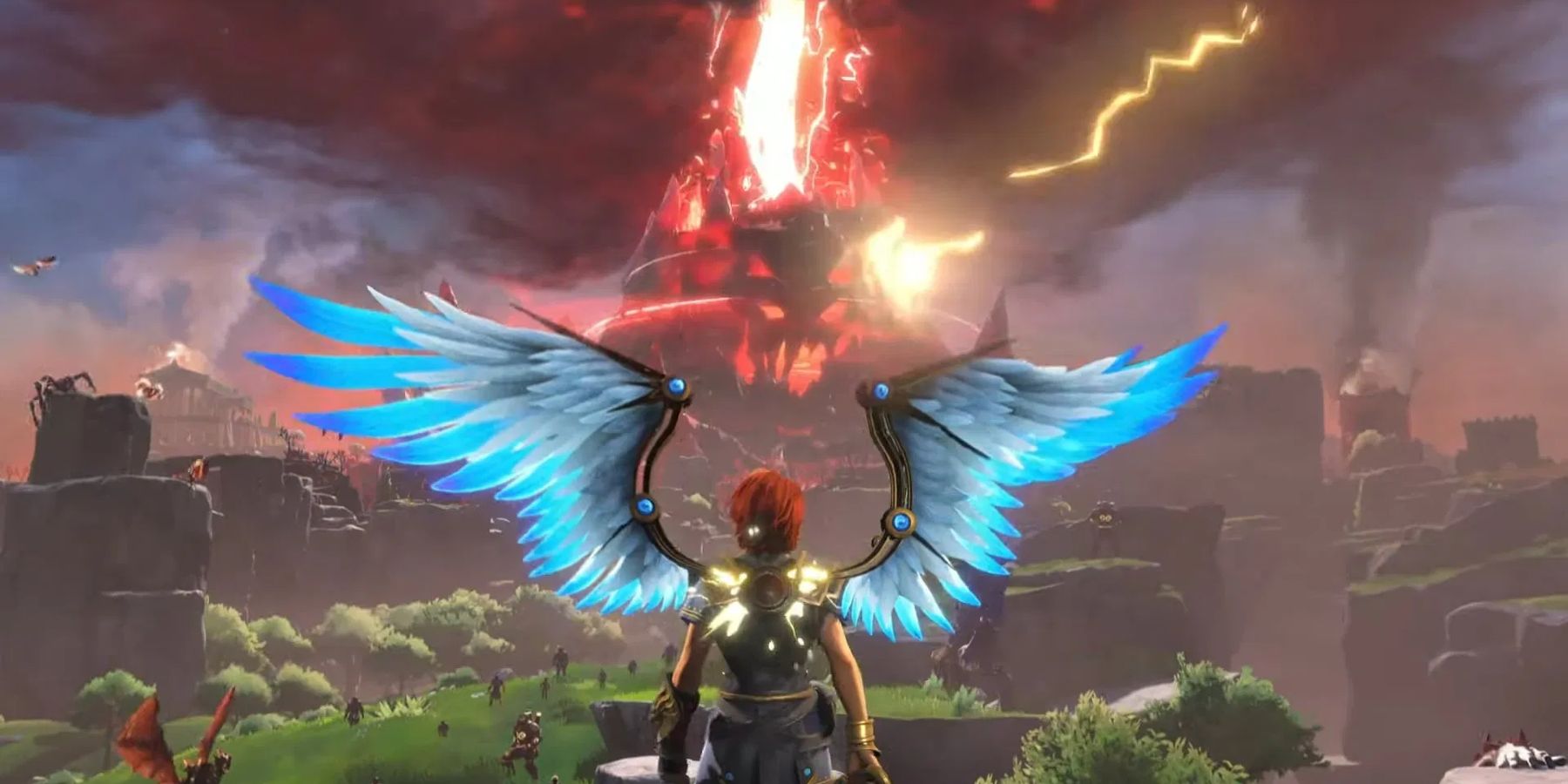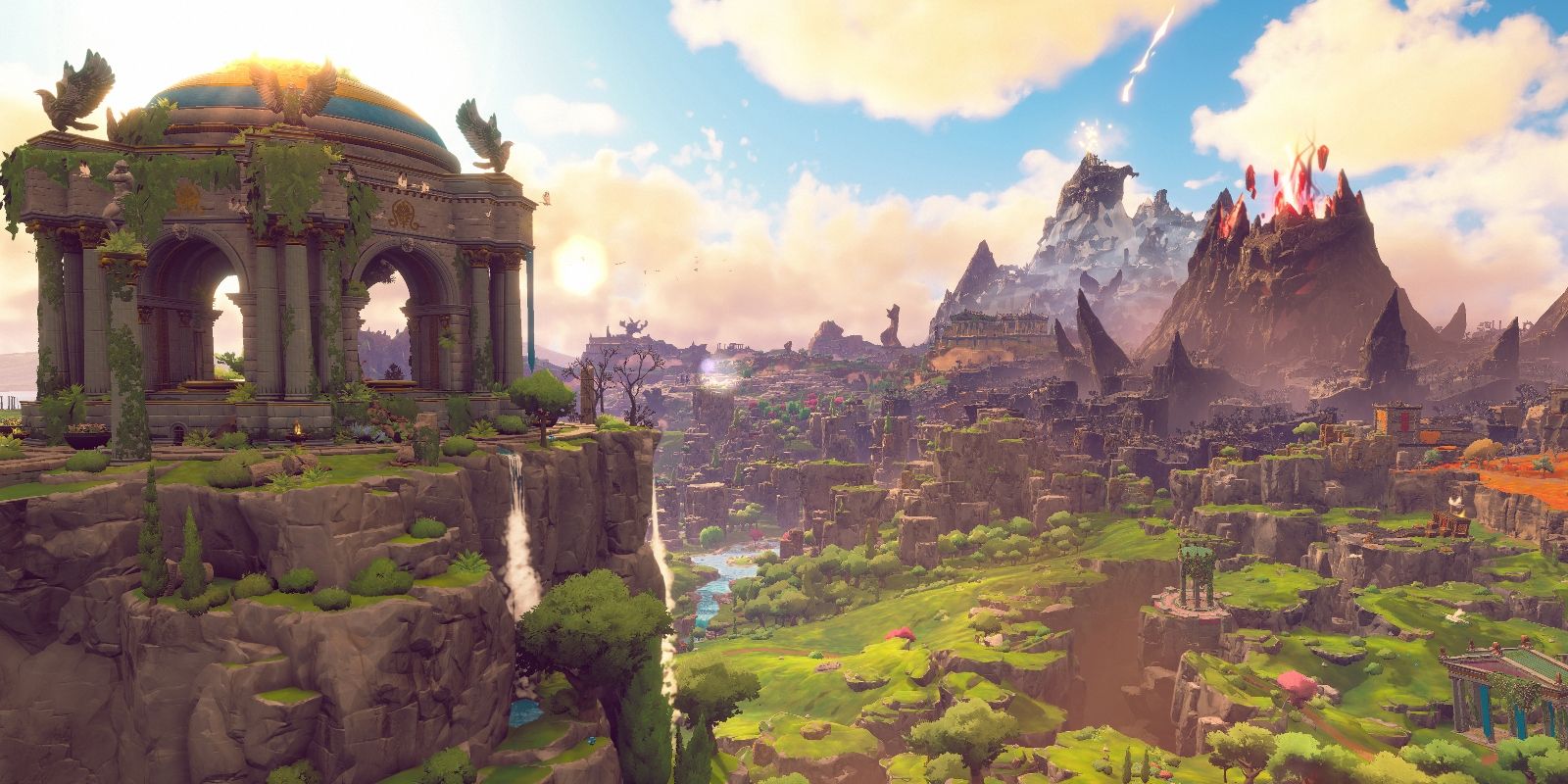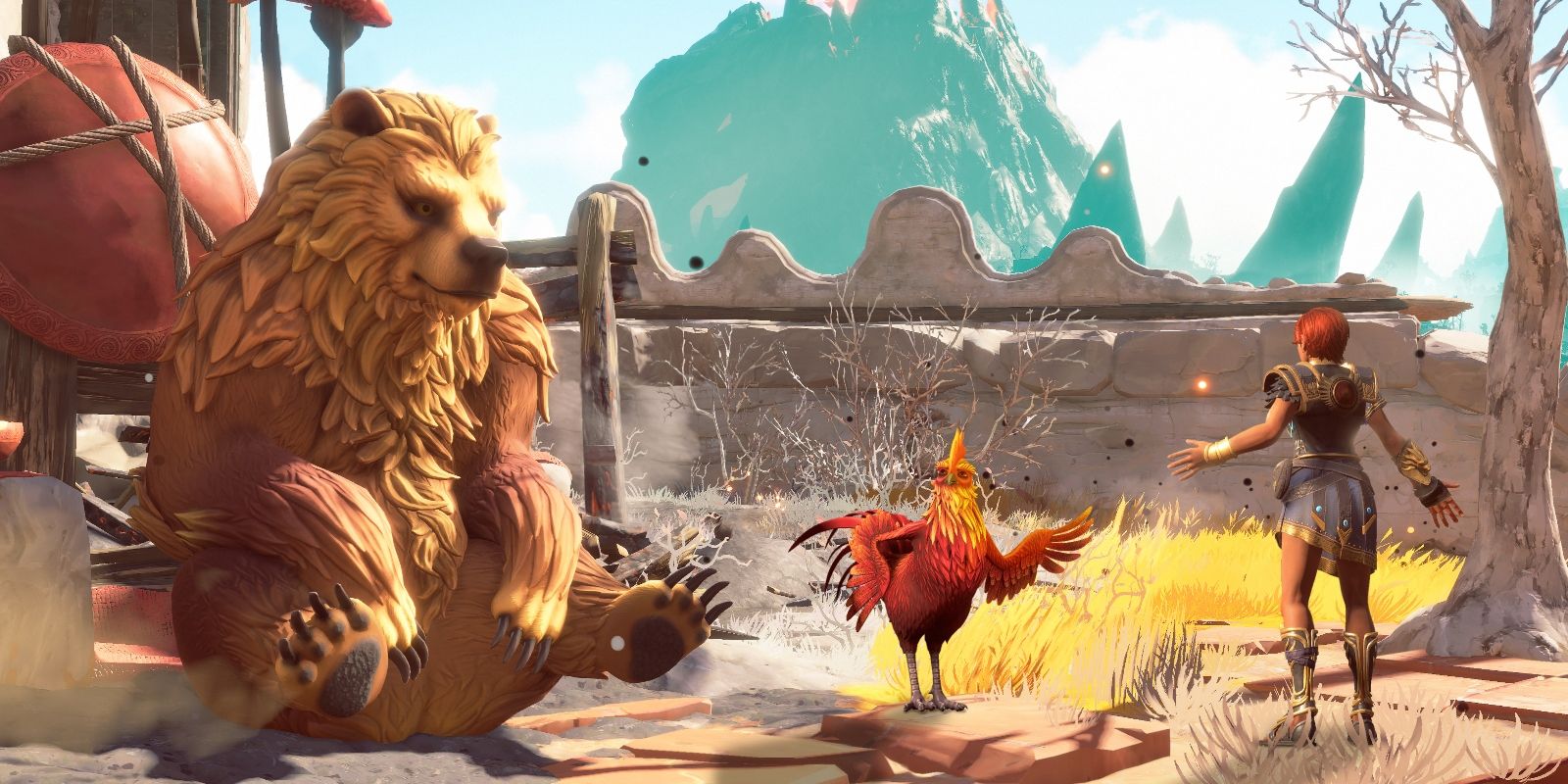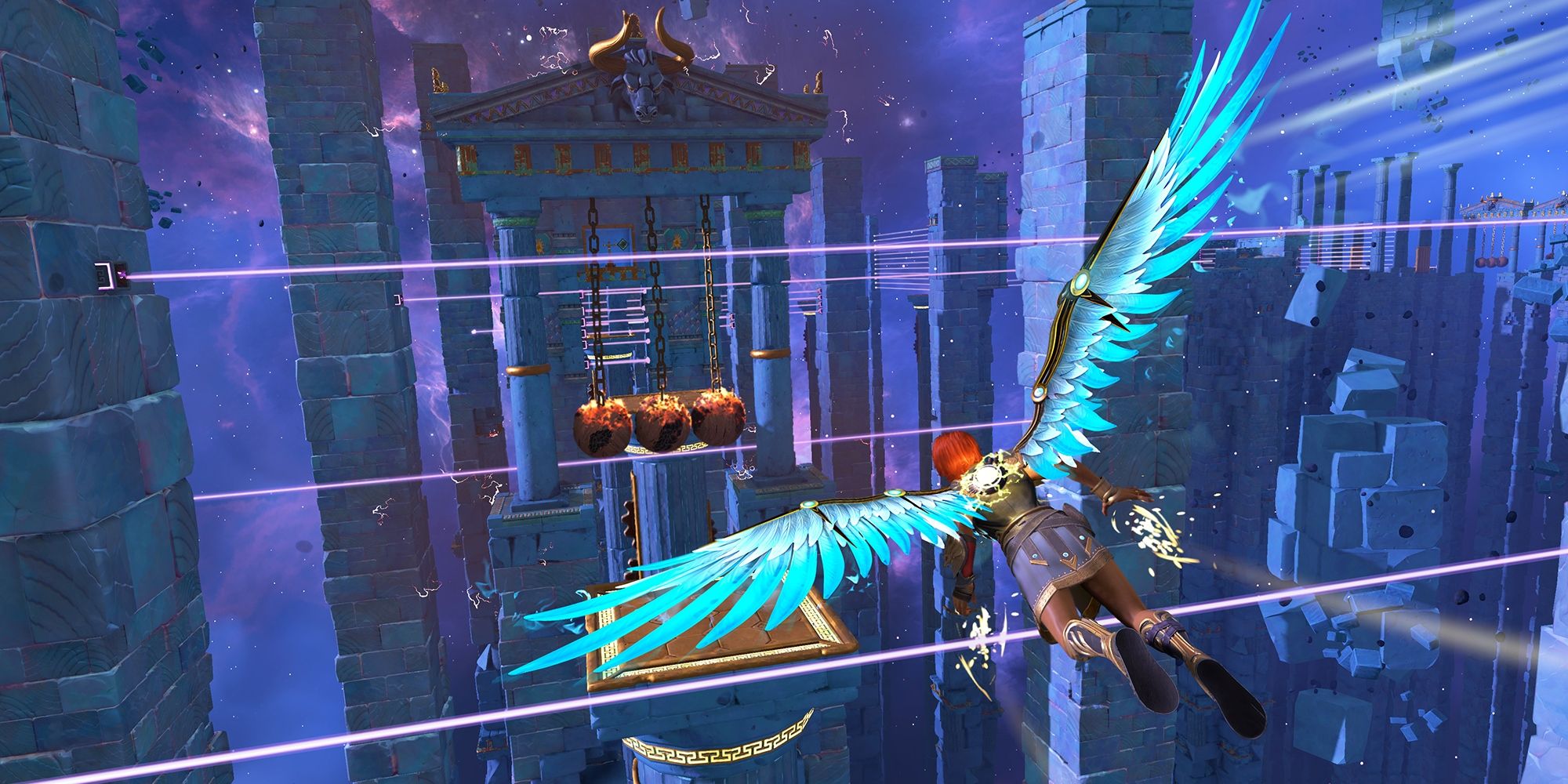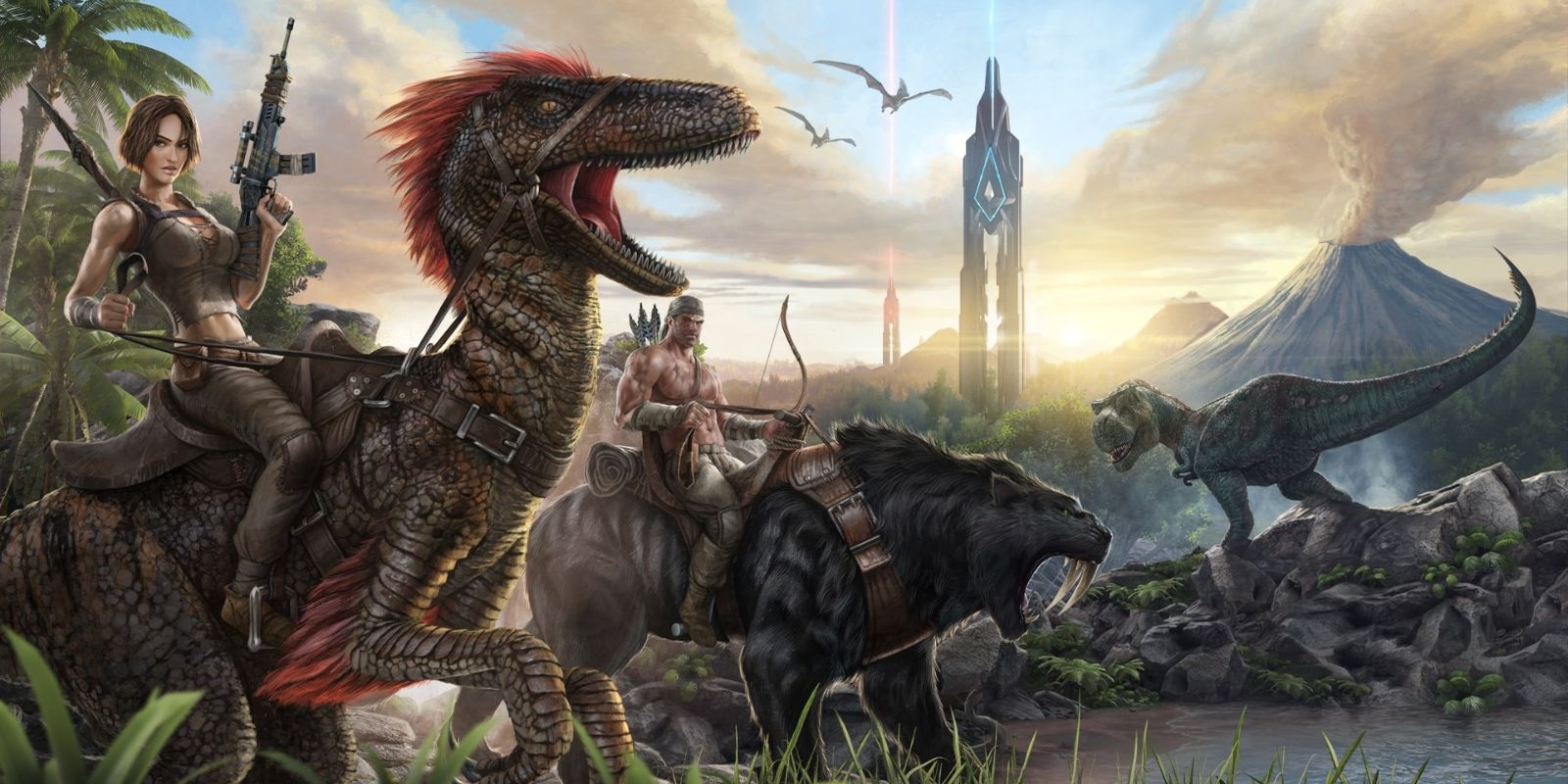One of last year's great open-world titles, Immortals Fenyx Rising takes players on an adventure across the Golden Isle, a bright, colorful land inspired by Greek mythology. Among these gods and monsters of the ancient tales is protagonist Fenyx, a new hero who sets out on a journey to restore the essences of the gods, gaining new powers and blessings along the way. Accompanying players on their journey -- and setting the tone for Immortals' gorgeous world -- is music from composer Gareth Coker.
Coker is also known for his work on games like Ori and the Blind Forest and its sequel, Ori and the Will of the Wisps, as well as Darksiders Genesis and ARK: Survival Evolved. His upcoming projects include Halo Infinite, as well as ARK's sequel and star-studded animated series. Speaking to CBR, Coker discussed his approach to writing Immortals Fenyx Rising's score, working with an industry-giant like Ubisoft and bringing ancient stories to the 21st century.
CBR: I'm curious to hear about how you got involved with Immortals Fenyx Rising.
Gareth Coker: I think it was early 2019. [Ubisoft had] been looking at a bunch of composers, but they came across my Ori work and some of the other things I'd done. Actually, what ended up happening is they used my soundtrack for Minecraft: Greek Mythology as temporary music. I think it ended up working, and they were like, "Maybe we should contact the composer." I'm not sure if that's exactly how it went down, but I know that's at least part of it.
You mentioned your work on Ori. How does working with a massive AAA studio like Ubisoft compare to working with a smaller indie developer like Moon Studios?
There are definitely advantages and disadvantages. I think things can generally just take take a bit longer. But in the case of Ubisoft, I got more access than I expected for a AAA game. Normally, the security is pretty high for a big release; they don't want to give you too much. Whereas on Ori, they give me literally everything I could ever want -- sometimes even too much. Every piece of concept art, every animation, I can basically see the game being made in real time.
Ubisoft gave me a lot of stuff, but it was always stuff I just needed. One of the cool things about game development in this decade and onwards is we're all moving to cloud gaming. It makes it easier than ever to test the game out in real time while it's being worked on. Before, you'd have a lot of big companies hesitant to upload a build of the game to some random website or FTP because of the potential of being hacked. It's a lot harder to hack the cloud stuff.
It's easier to look at the game, play it, test it, while you're working on it, which always leads to a more unified result. That's the thing I've been going on about for years: getting composers involved early and also giving them some emotional equity in the game at an early stage, because it actually helps later on. Let's just take Immortals as an example. It's a very fun game. Going in knowing nothing about it, I thought it was just going to be like a fairly typical Greek mythology romp with a with a Disney-esque cartoon style. And it's actually way more lighthearted than I had anticipated.
I think, because of that, it actually stands out by itself. Everyone knows it's being compared to Breath of the Wild, but you could not find two games that feel more different. The tones of the games are diametrically opposite each other. And that's something I wasn't expecting going in. I was like, "Ah, okay, we get to do like the epic Greek music kind of thing." But we also get to have some fun with it. For example, I never thought I'd be writing music for Ares, and Ares is depicted as a chicken.
Because I was in relatively early into production when it was still in its embryonic stage, I was able to get a feel for that, and it informed my choices moving forward. By the time we got to the end, I knew exactly what I was going to do. And that was really helpful.
You made the Breath of the Wild comparison in terms of Immortals' gameplay and open-world. I'd love to hear about what goes into composing for a game like that. How does the fact that you can't really anticipate what the player is going to do and how they're going to interact with the world impact your approach to writing the score?
This was my first time doing doing a big open-world game like this. I'd had ideas about how I'd want to score one, but of course I'm coming into a publisher and developer that has their way of doing things. Ubisoft's pretty good at building open worlds at this point.
When you can't plan for what the player is doing, you want to have landmarks or main events, things that you want the player to really remember. You target those to be the standout pieces of music. So things like boss fights, or reaching visual landmarks -- there's a ton of visual landmarks in the game. You climb to the top of one, and then a big, powerful piece of music plays. So you've got these landmark pieces of music dotted throughout the game. Cutscenes are another opportunity to do that.
But then it comes to, "What's the player going to do when they explore?" Some games take a minimal approach in that respect. Breath of the Wild is one of them. There's actually not that much music in Breath of the Wild, especially compared to previous Zelda games. Whereas, in Immortals, even the normal music setting has quite a lot of music.
[Music supervisor] Jerome [Angelot] came up with this really cool system that terrified me when he first told me about it. He said, "So we want to have a suite of music for each god. Each god has a region in the game, and we want that music to be able to switch dynamically between regular exploration on foot, flying, horse riding. And then, when you get into combat in one of these regions, it also needs to change as well."
And I was like, "I don't know if that's going to work." Because it's four completely different fields, and they've all got to change on the fly -- and they've got to feel musical. If you've played Immortals, it's quite melodically driven. Doing that without melody is really easy. Doing it with melody is really hard because you don't want them to clash with each other.
I started with the easiest one, which was flying. I was like, "Great, the flying is going to be the lightest because you're in the air." And it's kind of peaceful when you're flying around the game -- it's especially amazing when your stamina bar is fully upgraded and you can fly for a long time. We're basically just going to use some soft, ambient, ethereal sounds, and then add one woodwind instrument on top of it, which for the base game is the oboe or English horn.
Then, I switched to the horse riding, which basically used a similar melody in a different instrument -- sometimes just strings or sometimes a plucked instrument -- but had a lot more momentum in the music and a lot more pulse because horse riding is kind of percussive as well. And I was like, "Okay, I want it to really feel like the music is galloping along with the player."
That left a ton of room for the regular on-foot exploration music, which is generally fairly ambient, but still plays the melody. I basically saved everything that was percussive and aggressive for the combat music, and so they actually ended up all feeling quite different as a result. At the end of all that, I've done one suite for, let's say, Ares. Then, what ended up happening is we actually have three suites per god -- and it's actually five for Zeus -- so it's something like 20 different suites of music that are region-based.
It was an insane amount of work, but it means that, because you're switching on the fly, no player is going to get the same exact musical experience because we all play it in a slightly different way. I think that adds to the longevity of it. You're hearing all of this buried music. When you get to the pillars, the landmarks, the boss fights, that's all the same for every player, so there's something unified there. But then your regular exploration, open-world music is going to be different the whole time.
As you said earlier, Immortals wasn't your first time composing for a game based on Greek mythology. Were you super familiar with the subject going into these projects? How did that knowledge, or your subsequent study, inform the work?
There's not actually that much documentation on ancient Greek music. There's also a very limited number of instruments as well. The approach for Minecraft: Greek Mythology was very different because they want music that just sits and takes the player to that world, because obviously, Minecraft is an extremely calm game. Whereas Immortals is all about the story and the characters, Minecraft was "Evoke the setting of this time period, but you can make it a little bit modern because the graphics are obviously Minecraft-esque." And so you can get a little bit more esoteric and abstract.
With Immortals, while it's got the animated, cartoony style, it's still really [about] storytelling. I was given a huge amount of material from Ubisoft based on characters and how all the gods are linked to each other. It turns out they were a pretty interesting bunch! A lot of my decisions in the music were based on what the story and the characters were informing me.
Often when I write, it's actually settings first and characters second, because the setting can inform what instruments I'm going to use. But for this, I was like, "Well, what is the character of Ares?" Okay, he's the warmonger god; we make his music a little bit more aggressive. Aphrodite is the goddess of beauty and love, so let's make sure that her music feels like that, whatever that means. Obviously, everyone's interpretation of that is slightly different, but I did what I thought was appropriate. Fortunately, Ubisoft agreed with my approach.
I think that's the cool thing, though. The gods have such unique personalities. And I think you can go to each region of the game and the music does feel very different from one area to another. You cannot compare the music of Aphrodite to Hephaestus. One is a blacksmith, and the other, when you meet her, she's a tree. So that really was the goal: look at the personalities in the story and the character traits.
Hermes' music, for example, is quite fast-paced compared to the exploration music of the other gods. He's the messenger god, and he moves quickly. So it's really just interpreting the character, the gods' characteristics, into music. But then it's about trying to execute that concept to make it work in the game.
Immortals draws from some of the oldest stories have been passed down for thousands of years, but it's also coming from a contemporary lens and following a completely new character in Fenyx. I'm curious about the balance between old and new and how that affected your work.
When I first started writing music for this game, I wanted to have some sounds from ancient Greece. And I think it's reasonably well known now that I commissioned to have two instruments made for this project. One of them is an authentic Greek lyre. And they really are made pretty much the same way they were thousands of years ago. There's a couple of specialists in Greece -- I was very nervous waiting for those to be shipped across the Atlantic Ocean!
And there's another instrument (which I don't play) called the aulos. It's in a track on the soundtrack called "Aulos of Tartarus." If you heard that instrument by itself, you'd think it was the nastiest sounding thing ever. It just doesn't sound good when played conventionally to my ear. Even if you've got a really experienced musician who understands Greek music, it's a fairly abrasive sound. And if there's one thing that Immortals is with all those beautiful visuals...I was like, it's not going to work -- but how can I make it work?
We've got this whole subsection of the game where you enter the Tartarus rifts, and you kind of go into the Underworld of the game -- except it's this celestial space, which actually looks fairly magnificent. And I was like, "Okay, this is the place I could make the aulos work." The approach (this is about combining old and new) was, "What if I took this sound, just produced it in a very modern cinematic way to try and make it work in context of this game?"
I spent a long time just fiddling around, getting recordings of the aulos from my windplayer. She sent me a bunch of things, and I was like, "Great, I'll get back to you in a couple of weeks once I figure out how to make this work." Really, all I ended up doing was putting a ton of reverb and delay on it to make it sound like it's just echoing into the void. That ended up softening the sound a little bit. It still sounded like an aulos, but it would sound like the most ethereal version of aulos you've ever heard. And I was like, "That's it. That's the sound for of all of the Tartarus rifts."
It's just that kind of approach: taking some ancient instruments and putting them into a modern 21st century setting. I was mindful of wanting to make the score accessible, rather than being a study on ancient Greek music. It features instruments from ancient Greece, but I think it has to be accessible, just based on how the game looks. It's very inviting. This is not a study of Greece at a university; it is a fun thing for people to jump into.
You only have to look at Hades to see that you can go in a very, very, very contemporary direction and it still works. That's the great thing about video games. We get to interpret all of this stuff in our own ways. Hades does things very, very differently, and really successfully as well. So it's interesting. I feel like we've had a whole bunch of Greek mythology games -- you've got to include God of War and Assassin's Creed Odyssey, which all feel slightly different and are fairly successful in their own ways. So, maybe there's just a huge appetite for Greek mythology stories at the moment.
You have a very diverse resume in terms of the kinds of games and styles you've worked on, or have in the works with Halo and ARK. Is there anything else you're still dying to do?
Well, I would love to do a sci-fi thing at some point. I know people will probably look at me and think "Why sci-fi?" but it's something I've always wanted to do. One of my favorite trilogies of all time is Mass Effect, but I am pretty sure they are well catered for on the composing front. Plus, I'd also be entering into someone else's IP. I would like to do what I did on Ori, Immortals or ARK, which is create a sonic DNA from scratch, just set in a sci-fi setting.
Don't get me wrong -- I love doing the fantasy stuff. And ARK was an absolute blast, because it just screams "Compose the loudest music you possibly can," which is great fun for any composer. But yeah, for me, the real excitement comes from being able to help build an intellectual property from the ground up in terms of how it sounds musically. That is where the real fun happens.
I'd love to work on an Assassin's Creed game at some point because they do a different setting each time. You get your chance to do your own sonic identity. And there's really only one common theme through the game series, which is "Ezio's Family" from Assassin's Creed II. So that would be one I'd like to jump into. But generally speaking, being able to create a new sonic DNA is what I'm looking to do moving forward. But, of course, you know, who would say no to Halo?
One last question before I let you go! What advice do you have for aspiring or up-and-coming composers who are interested in making video game music?
The advice I'm giving is non-musical. Especially when you're starting out, if you want to have the best chance of making an impact, you've got to play the game. I think there are a lot of composers starting out who think "I'll just write some game music and just send it off to the client." And you can do that. But truly understanding what the player is going through when they have that controller in their hand -- you cannot understand that until you do it yourself.
The difference between films, TV and games is, in games, you are an active participant in what you are playing. In films and TV, you are passive. Now, that doesn't mean you can't be emotionally affected, but there is a special connection when the player is holding the controller, and they are actually in control of the situation. When we play a game that we connect with, it actually touches us, I think, in a slightly deeper way than a film or TV show could -- not that they can't do that. But when it's a game and you control the character, that was all you, even if you were just pressing right on the controller. You decided that, and there's a unique connection that happens.
When you're scoring a game, you want to be able to put yourself in exactly what the player is experiencing so that you can truly understand how to write the best music for the moment. And, you know, ultimately our job is to emotionally manipulate. That always sounds like a dirty word, but that's literally what we've been doing since we started making films, let alone games. That's literally what an actor is doing when they cry on screen. Getting into the shoes of what the player is doing is good. Before you even write a note, you should play the game and try to understand what the game developer is going for.
Developed by Ubisoft Quebec and published by Ubisoft, Immortals Fenyx Rising is available now for PC, Stadia, PlayStation 4, PlayStation 5, Switch, Xbox One and Xbox Series X.

